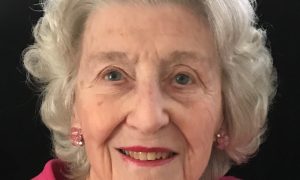 WESTFIELD – Question 2 involves a law proposed by initiative petition to create a commission on limiting election spending and corporate rights. A Yes vote would create a citizens commission to advance an amendment to the United States Constitution to limit the influence of money in elections and establish that corporations do not have the same rights as human beings. A No vote would not create this commission.
WESTFIELD – Question 2 involves a law proposed by initiative petition to create a commission on limiting election spending and corporate rights. A Yes vote would create a citizens commission to advance an amendment to the United States Constitution to limit the influence of money in elections and establish that corporations do not have the same rights as human beings. A No vote would not create this commission.
The non-partisan Citizens Commission would advance the policy of Massachusetts in favor of amending the Constitution to affirm that artificial entities do not possess the inalienable Constitutional rights of the People, which the Supreme Court gave to corporations in the Citizens United ruling; and to eliminate the undue influence of concentrated money on elections and on governmental policy, campaign contributions and spending, which may be regulated and limited.
The argument for Question 2 in the Secretary of the Commonwealth’s Information for Voters booklet, written by former Massachusetts Assistant Attorney General Jeffrey Clements of People Govern, Not Money, claims that “behind our nation’s challenges is a crisis of billionaires and special interests using money to buy access and influence with politicians.” Clements also claims that 75% of Americans, liberals and conservatives support amending the U.S. Constitution in regards to the Citizens United decision.
If Question 2 passes, the law would take effect on January 1, 2019. The members of the Citizens Commission would be appointed by the Governor (3 members), Secretary of the Commonwealth (3 members), Attorney General (3 members), Speaker of the House (3 members), and President of the Senate (3 members).
Any citizen application to serve on the Commission must include the intent of the applicant, qualifications and interest, political party affiliation, if any; city or town of residence, and employment of applicant, if any. Appointees shall serve without compensation.
The Citizens Commission shall deliver its first report and recommendations to the appointing authorities on or before December 31, 2019.
The argument for voting no on Question 2 hinges on the right to Freedom of Speech equally for all entities and organizations, “rather than just the arbitrary winner and losers selected by elected officials in previous campaign finance laws,” according to the Massachusetts Fiscal Alliance, as stated in the Secretary’s Information for Voters booklet.
The Alliance goes on to state that “protection of our Freedom of Speech is one of the pillars of our democracy, and should be preserved and expanded at every possible opportunity.” The Alliance also argues that an amendment to the United States Constitution is a “dangerous and misguided way” to go about undoing the Citizens United decision.
According to Ballotpedia (ballotpedia.org), proponents of Question 2 have spent $287,899 in favor of the question, and proponents of a No vote have spent $0 in opposition.
QUESTION 3 Transgender Anti-Discrimination
Question 3 is a referendum on an existing law (Senate Bill 2407) which adds gender identity to the list of prohibited grounds for anti-discrimination in places of public accommodation, which passed in 2016. A Yes vote would keep in place the current law, which prohibits discrimination on the basis of gender identity in places of public accommodation. A No vote would repeal this provision of the public accommodation law.
In arguing Yes, Susan Donnelly of the Freedom for All Massachusetts says keeping in place the current law keeps Massachusetts welcoming and fair; prevents discrimination in places like stores, restaurants and hospitals; protects transgender youth and adults, and lets transgender people go about their daily lives, “including in restrooms, which we all need to use.”
Debby Dugan of Keep MA Safe said voting No will repeal the “Bathroom Bill” and prevents men from entering women’s bathrooms, locker rooms, dressing rooms, and intimate spaces. Dugan argues that the law violates the privacy and safety of women by “allowing any man identifying as a woman, including convicted sex offenders, to share women’s facilities.”
According to Ballotpedia (ballotpedia.org), proponents on Question 3 have spent $4,413,354 in support of a Yes vote. Top cash donors include the Freedom Massachusetts Education Fund ($627,888), American Civil Liberties Union ($400,000), Human Rights Campaign ($225,000), and Freedom for All Americans ($82,269).
Supporters of a No vote on Question 3 have spent $624,797. The sole donor organization identified by Ballotpedia is Keep MA Safe, which raised $441,867 in cash contributions.





